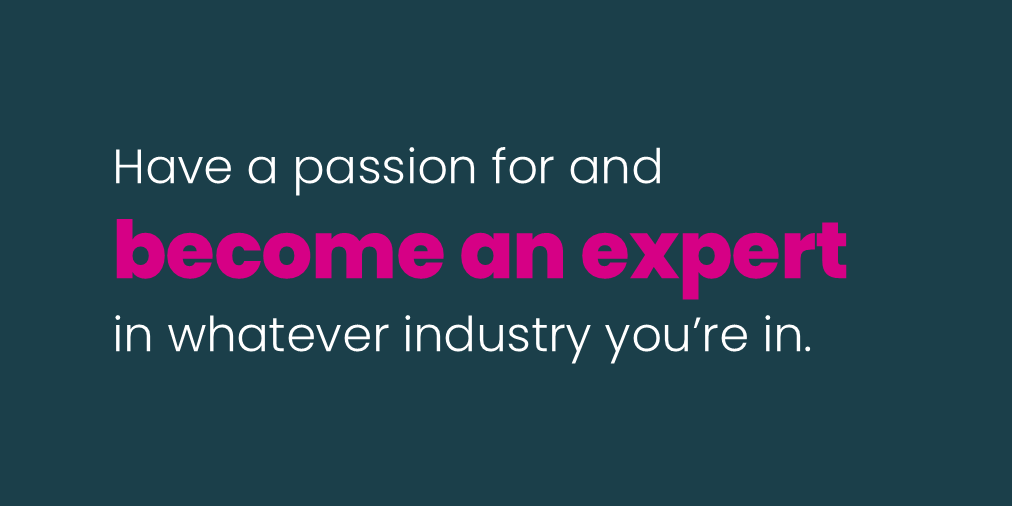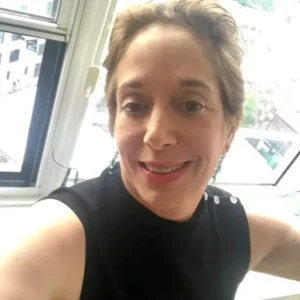
An interview with Tracey Gordon, one of the leading financial communication specialists
 Q. Tracey, tell us about your academic background.
Q. Tracey, tell us about your academic background.
I earned my Economics degree in England and communications graduate degree from Boston University.
Q. How did you land your first gig in financial PR?
I met the head of Fidelity’s PR department, and he asked me to interview for the national media relations position. He was an Anglophile, so I think that helped, but during my interview he commented that the potential for a market crash was high—and as the last in I could be the first out.
I started the week before the 1987 market crash and went from pitching college savings to telling the NYT that “Fidelity had no idea what was happening!” Not the best start to a career in media, but I survived the huge layoff.
Q. You had some early career success at Fidelity which at the time was flying high with many celebrity portfolio managers. Any lessons from “handling” these well-known stock pickers?
There are two things I’ve always told people on my teams or the many I’ve mentored over the years. First, have a passion for and become an expert in whatever industry you’re in.
Second, and I quickly learned this being at Fidelity early in my career, match the business in how you practice PR. Every company I worked for was continually on offense, never passive, always looking for opportunity and always innovating.
I was an early stock market fan, so I loved hanging out with the Fidelity portfolio managers and analysts, just talking about what they were investing in. I was the inside reporter and from those chats came the opportunities. Behind every stock or strategy there’s a story, so I started to pitch reporters on those stories versus the dry stuff they were hearing from other firms.
Very quickly Fidelity was getting coverage they’d never seen before with billions in new flows tied directly to the publicity.
When that happens, you’re seen by the c-suite, marketing and sales as a driver of the business and of the bottom line. For a PR person that equals a seat at the table. I took that philosophy to the other firms I worked for.
Q. You also worked at Schwab during an era when the firm was aggressively launching its online platform and growing OneSource under industry icon David Pottruck. Any highlights you can share about your experience at Schwab?
When I joined Schwab, I realized that Dave was exactly like my former boss at Morgan Stanley, John Mack. Both were brilliant leaders, but deeply distrustful of reporters. As I’d done with John, I showed Dave that we could shift that negative to a strong positive that favored Schwab. Reporters who are covering an entire industry don’t want to be endlessly pitched on a new survey or product, they want to be informed, clued into what is happening behind the scenes in the industry, who is doing what that no one is covering, and of course the buzz AKA gossip.
I set Dave up with off-the-record or background chats with the key reporters covering our industry. He became very comfortable with them and was seen as a valuable source, just as John had. He realized the power in being an information conduit to the press and quickly became an industry icon. You have to remember that being a reporter is very competitive and stressful. If you’re at the Journal you don’t want to be beaten on a major story by the FT. Use that to your company’s advantage. It’s a long-held practice in politics and I just applied it to how I did my job. Schwab went from an “interesting” regional discount broker to a globally renowned industry disrupter that Wall Street both feared and admired. It was a turning point for the company.
Q. What is something you are most proud of in your work at these and other iconic firms?
Without a doubt I’m most proud of helping each of them achieve the recognition as industry leaders and the business success they deserved. Nothing is more satisfying as a communications practitioner than using your skills to help the bottom line. Great coverage can never replace a soaring stock price, AUM tripling or the company being recognized as a star that is leaving former industry leaders far behind.
Q. What are two or three “must reads” for you to keep up on your craft?
My industry has always been financial services, but at Edelman I worked on consumer and industrial clients, so this applies to any sector. I’ve always been a research wonk so reading everything, not just the WSJ, is my mantra. Pre-digital it was more challenging, but today you can get it all streamed. Say you’re in wealth management or you have a fintech client, use social channels, email and hashtags to scan all the industry pubs, thought leaders and your competitors.
The best media people are as thorough as the best research analysts. Dive deeply into your industry every single day.
Q. What mistakes do you think PR pros make in this industry? Any mistakes you personally made that led to important lessons?
I think the biggest mistakes are not reading what reporters you’re pitching are actually writing or pitching them on something so removed from their actual beat. There’s really no excuse these days as it’s so easy to do an online search or use one of the many services. Reporter friends still vent about some PR person pitching them on something they just wrote about.
My biggest mistake was not learning very early on how to use off-the-record, background or not-for-attribution and to establish very clearly any interview guidelines ahead of opening my mouth. Lesson: reporters often interpret the terms differently.
Q. Are there other journalists or PR pros you admire and why?
Oh, there are too many to name and I know I’d leave out someone fabulous. I’ve been so fortunate to have worked with and become friends with some amazing journalists and PR people over the years. Those relationships helped me help the firms I worked for, and I thank everyone for the many years of both competitive battles and the glass of wine at the end of the tussle.
Subscribe.
Receive the latest news and insights from Lowe Group.